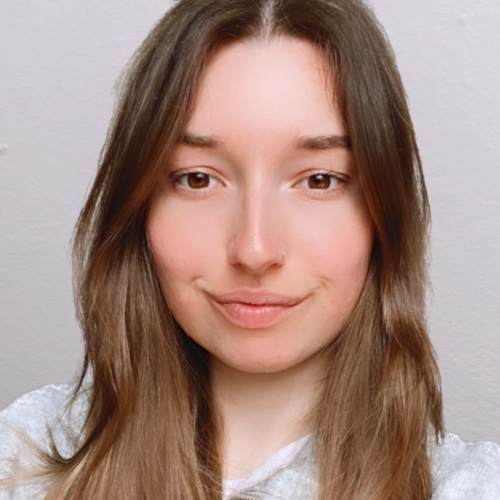Preserving memories is care work. In particular, the history of marginalized or persecuted groups, or those affected by diseases, is not automatically preserved and maintained; this also applies to the history of AIDS activism. This film programme highlights (queer) AIDS activism in the 1980s and 1990s, in addition to cinematic and intergenerational practices of memory preservation. Queer and feminist remembrance emerges in contrast to the hegemonic historical narrative and oblivion. Memories are cared for collectively.
The programme begins with Julie Dash's music video for the song BREATHS by the inclusive African-American women’s a cappella ensemble Sweet Honey in the Rock. The video brings together communal commemorative rituals. This is followed by two current documentary films by the younger generation: DIE UNEINSICHTIGEN – AIDS-AKTIVISMUS IN FRANKFURT A.M. (The Unreasonables – AIDS Activism in Frankfurt am Main) and LLOYD WONG, UNFINISHED. In them, the filmmakers engage in an active exchange with their communities’ past through archival material and conversations with contemporary witnesses. The programme concludes with experimental Super 8 films by Inger Schwarz. Inger is a DJ, filmmaker, and musician who was part of the collective at the “Buschwindröschen” queer community space in Cologne, and filmed on Super 8 between 1994 and 1997. In preparation for Remake, Inger travelled to the bildwechsel archive in Hamburg to bring these film treasures back to the big screen.
Following the programme, filmmakers Inger Schwarz and Zoë Struif will speak with two eyewitnesses: Virginia Wangare Greiner, the founder and director of Maisha e.V., appears in DIE UNEINSICHTIGEN as a contemporary witness. The counselling centre began its work in the 1980s as a self-help group for African women within the context of AIDS. Ralf Döblitz was a care worker at Haus 68 (the AIDS ward of the university hospital) and is active with AHF-Aidshilfe Frankfurt. The discussion will be moderated by Dr. Josefine Hetterich, who researches and teaches feminist theory, queer cinema, archival theories, and AIDS video activism in Mainz. (Lou Deinhart)
CA 2025 | Director, screenplay, editing: Lesley Loksi Chan| Production: Lesley Loksi Chan, Luo Li, Phanuel Antwi, bb house | Colour | DCP | 29 min | english OV with english SUB | Distribution: Square Eyes
In the early 1990s, Lloyd Wong began to make a work based on his experiences living with AIDS in Toronto, but he died from AIDS-related illnesses before completing it. For three decades, his work-in-progress was considered “long lost” until it resurfaced at The Queer ArQuives. In this experimental documentary, Lesley Loksi Chan combines raw footage from Lloyd Wong, whom she considers to be her co-director, with fragments of her research notes, reflecting on what it means to inherit images from queer communities and to attempt to understand someone through multiple takes. Rough and unprocessed, this film explores the meaning of incompletion. Lloyd Wong, Unfinished draws attention to the daily complexities of being a Chinese Canadian gay man living with AIDS in the nineties, underscoring the power of self-representation and the tragedy of silenced voices – voices erased by systemic marginalisation and the HIV/AIDS crisis. By delving into Wong’s unfinished film, this project explores incompletion not as a failure or absence, but as a space for difficult questions, nuanced truths and ongoing dialogue about collective memory. Lloyd Wong, Unfinished is an act of intergenerational witnessing. (Berlinale Shorts 2025)
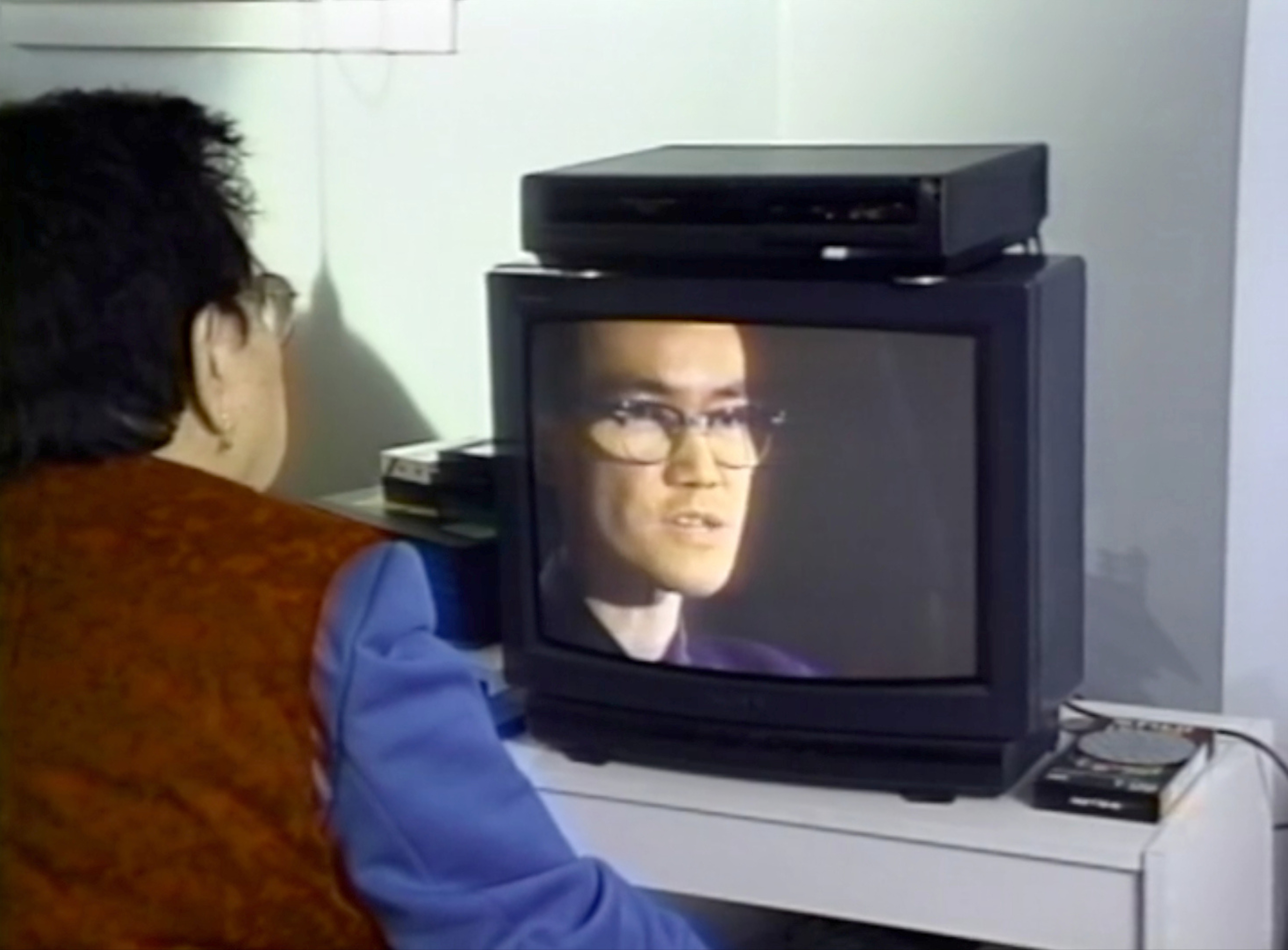
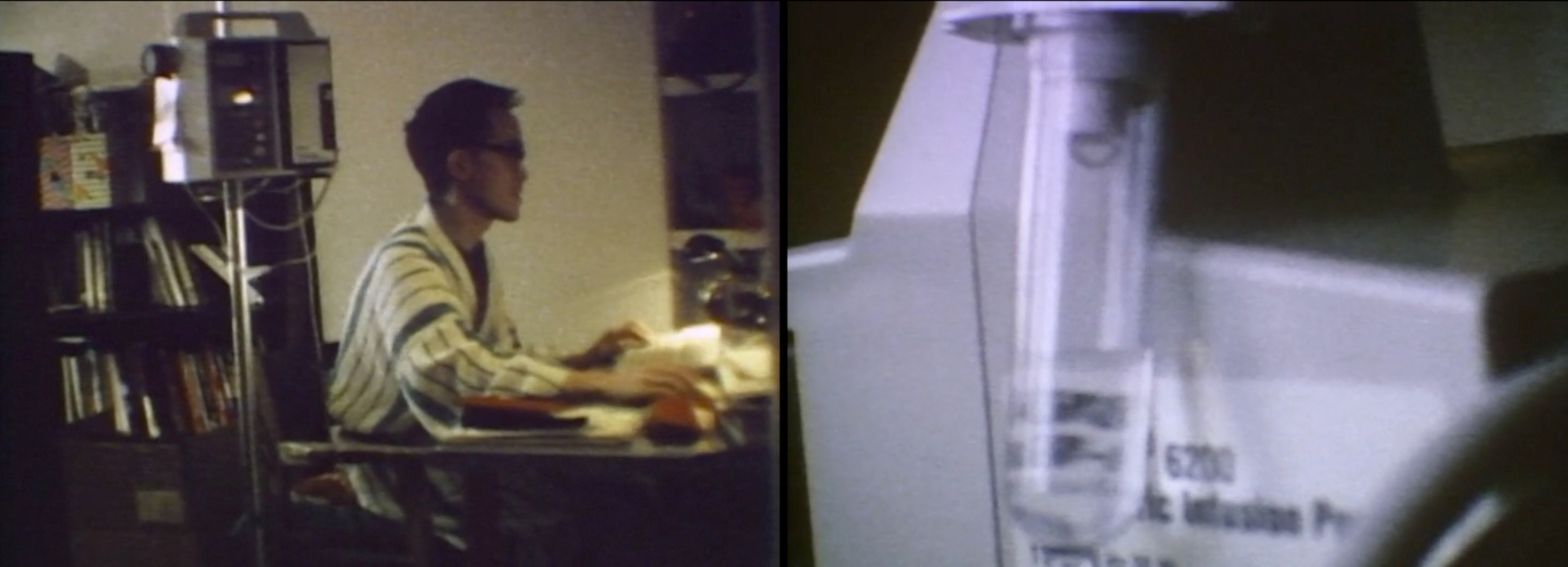
| Acronyms | |
|---|---|
| amer. | American English |
| b/w | Black and white |
| OV | Original version |
| SUB | Subtitles |
| +SUB | electronic live subtitling (below the image) |
| INT | Intertitles |
| Countries | |
|---|---|
| AT | Austria |
| FRG | Federal Republic of Germany (historic) |
| BLR | Belarus |
| DE | Germany |
| CAN | Canada |
| GDR | German Democratic Republic (historic) |
| EGY | Egypt |
| FR | France |
| GB | Great Britain |
| URY | Uruguay |
| BRA | Brasil |
| SWE | Sweden |
| UKR | Ukraine |
| PL | Poland |
| IDN | Indonesia |
| PRT | Portugal |
| HRV | Croatia |
| ECU | Ecuador |
| HUN | Hungary |
| AUS | Australia |
| IT | Italy |
| MEX | Mexico |
| IND | India |
DE 2024 | Director, editing, camera: Zoë Struif, Evi Rohde, Lou Deinhart | Graphics: Tyger Schubert | Music, sound editing: Luca “Tamino” Wuchner | Colour | 53 min | german, spanish OV with english SUB
The documentary film delves into the forgotten protests of the vibrant 80s/90s in Frankfurt, when activists rebelled against the repressive AIDS policy in a “Solidarity of the Unreasonables”. The protagonists of AIDS activism look back on this formative time and, complemented by rediscovered film material, a multi-layered, critical portrait of this movement emerges. A queer search by the younger generation for traces of the history of the “Unreasonables” (Produktionskollektiv Zoë Struif, Evi Rohde und Lou Deinhart)
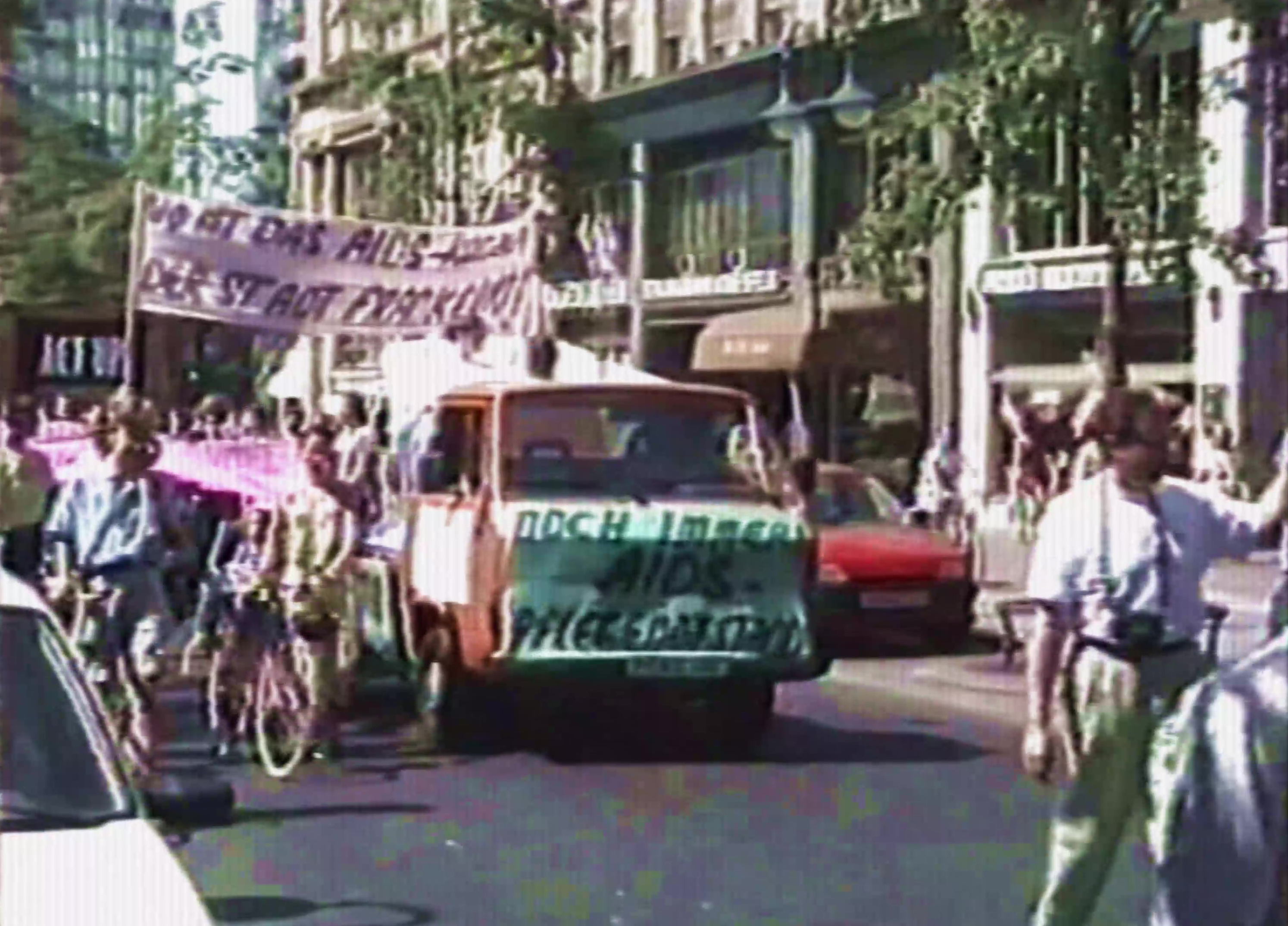
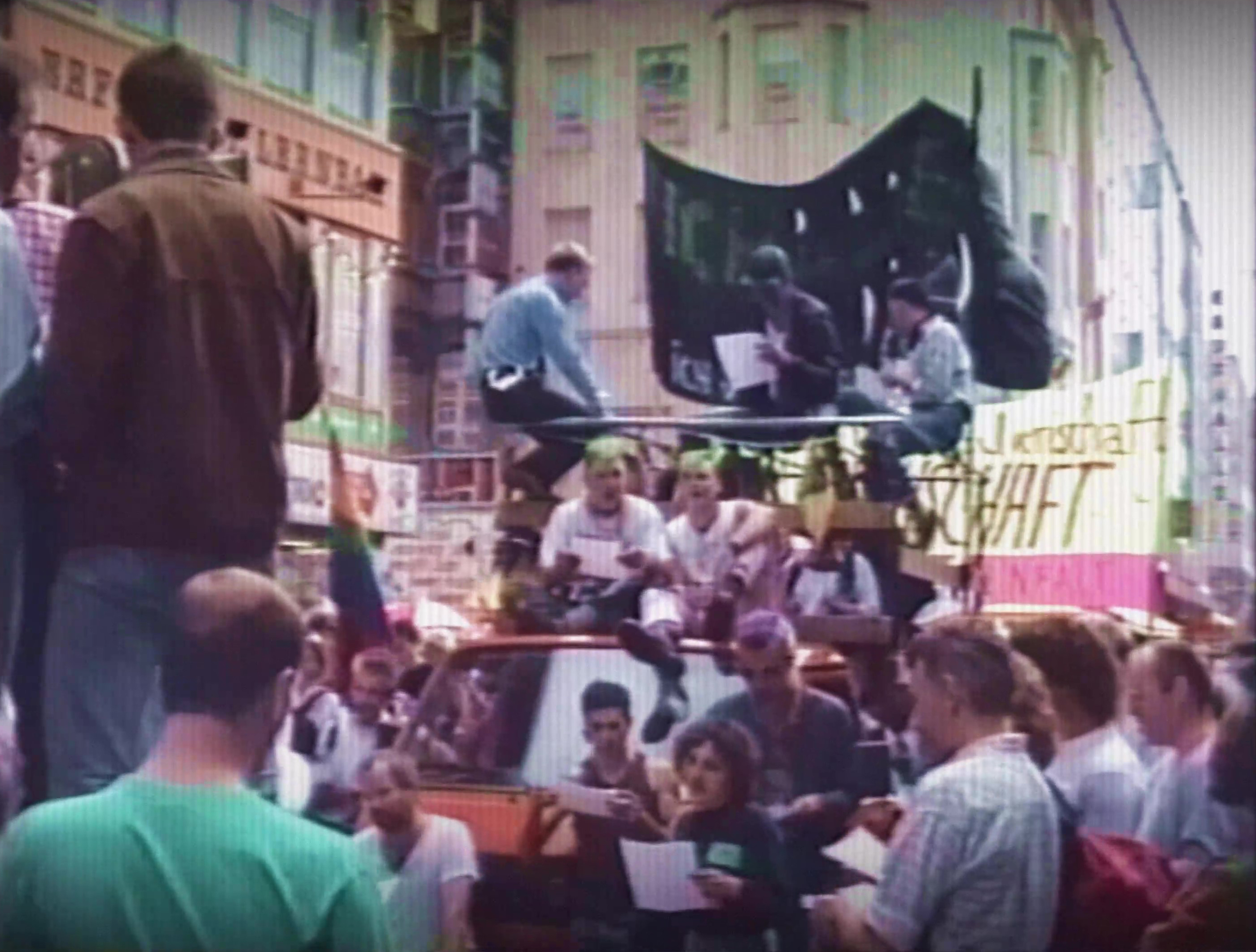
| Acronyms | |
|---|---|
| amer. | American English |
| b/w | Black and white |
| OV | Original version |
| SUB | Subtitles |
| +SUB | electronic live subtitling (below the image) |
| INT | Intertitles |
| Countries | |
|---|---|
| AT | Austria |
| FRG | Federal Republic of Germany (historic) |
| BLR | Belarus |
| DE | Germany |
| CAN | Canada |
| GDR | German Democratic Republic (historic) |
| EGY | Egypt |
| FR | France |
| GB | Great Britain |
| URY | Uruguay |
| BRA | Brasil |
| SWE | Sweden |
| UKR | Ukraine |
| PL | Poland |
| IDN | Indonesia |
| PRT | Portugal |
| HRV | Croatia |
| ECU | Ecuador |
| HUN | Hungary |
| AUS | Australia |
| IT | Italy |
| MEX | Mexico |
| IND | India |
DE approx. 1993–1997 | b/w | no dialogue | total length approx. 12 min
Inger is a DJ, filmmaker and musician who produced Super8 films in the period from 1994 to 1997 as a member of the collective in the queer community space 'Buschwindröschen' in Cologne. From its opening in autumn 1992 until its closure in 2000, Buschwindröschen evolved into a thriving hub of vibrant queer life in Cologne's Südstadt district. Inger has undertaken a trip back in time for REMAKE, venturing into the attic and Hamburg's bildwechsel archive in an effort to bring these cinema treasures back to the big screen.
| Acronyms | |
|---|---|
| amer. | American English |
| b/w | Black and white |
| OV | Original version |
| SUB | Subtitles |
| +SUB | electronic live subtitling (below the image) |
| INT | Intertitles |
| Countries | |
|---|---|
| AT | Austria |
| FRG | Federal Republic of Germany (historic) |
| BLR | Belarus |
| DE | Germany |
| CAN | Canada |
| GDR | German Democratic Republic (historic) |
| EGY | Egypt |
| FR | France |
| GB | Great Britain |
| URY | Uruguay |
| BRA | Brasil |
| SWE | Sweden |
| UKR | Ukraine |
| PL | Poland |
| IDN | Indonesia |
| PRT | Portugal |
| HRV | Croatia |
| ECU | Ecuador |
| HUN | Hungary |
| AUS | Australia |
| IT | Italy |
| MEX | Mexico |
| IND | India |
Zoë Struif, Evi Rohde and Lou Deinhart studied theatre, film and media studies and aesthetics in Frankfurt. As part of their master’s thesis, they spent two years researching queer memory work and AIDS activism in Germany/Frankfurt in the 1980s and 1990s. In cooperation with contemporary witnesses, the research led to ‘DIE UNEINSICHTIGEN – AIDS ACTIVISM IN FRANKFURT,’ a participatory, documentary film and archive project.

Inger Schwarz is a DJ, filmmaker and musician and filmed on Super 8 in the years 94 to 97 as part of the collective at the queer community space ‘Buschwindröschen’ in Cologne. In the framework of the Miesmovie Zine project, Inger also created the film MY FAVOURITE PLAYGROUND. In the 2000s, Inger produced two more Super 8 films together with Kerstin Schleppegrell: KEIN LICHT AM ENDE DER WELT, an experimental gender parody of the Western genre (2005, 4' Super 8, no dialogue), and the experimental sci-fi film UMBRELLA (Inger Schwarz & Kerstin Schleppegrell, Germany 2008, 6', Super 8, no dialogue).

Virginia Wangare Greiner is the founder and chairperson of Maisha e.V., a self-organized association of African women in Germany. For many years, she has been dedicated to advocating for the rights of migrant women, promoting health and HIV/AIDS education, and combating discrimination and racism. Through her work, she amplifies the voices of African women and fosters solidarity and empowerment within the community. The initiatives include health promotion through preventive programs and information sessions on women’s health issues, covering topics such as pregnancy, childbirth, and family health, as well as psychosocial counselling and support in accessing healthcare and medical services.
Source and further informations: www.maisha.org

Ralf Döblitz is a former nurse at Ward 68 for Infectious Diseases, HIV/AIDS, and tuberculosis at the Uniklinik Frankfurt. With the largest patient collective in Germany, Ward 68 played a central role in HIV care and medical research during the AIDS pandemic. "Since the early 1980s, Ward 68 has been not only a centre of progressive HIV therapy but also a place of lived solidarity. In 1982, two of Germany’s first four HIV patients were treated here. In the following years, the ward developed into the country’s largest HIV centre. Alongside medical care, the support from volunteers, initiatives, and organisations such as the Frankfurt AIDS-Hilfe shaped the spirit of the ward." (Source)
Ralf Doeblitz is also involved with Deutsche AIDS-Hilfe as part of the “Let’s talk about sex – medical training” program and the Buddy Project, Aidshilfe Frankfurt, particularly at Switchboard. Bar.Café.Kultur, where he works as a bar team member and cultural representative, as well as with the CSD Association Frankfurt am Main. Since 2017, he has been a member of AKTX Transplantationspflege e.V., serving on its board since 2020.
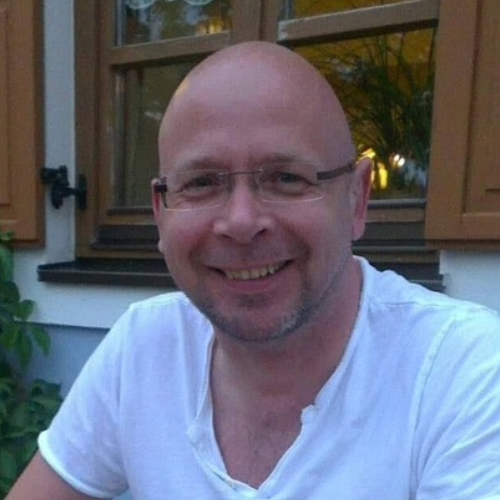
Josefine Hetterich researches and teaches about feminist and queer theory, AIDS video activism, and Cultural Memory Studies at Gutenberg University Mainz. After studying theatre, film and media studies as well as sociology at Goethe University Frankfurt and gender, media and cultural studies at Goldsmiths College, University of London, she taught film studies at Goethe University from 2018 to 2023. She then became a member of the graduate college Konfigurationen des Films, where she completed her doctorate in 2025 with the title Remembering Queer Futures: AIDS Media’s Moving Afterlives. She also curated and organised the international conference Jean Carlomusto Made Me Queer: Video Activism, Queer Archives and AIDS Crisis Revisitation (2022) as well as several queer film series in Frankfurt. Her texts have been published in anthologies by Hatje Cantz, De Gruyter and Verbrecher Verlag.
